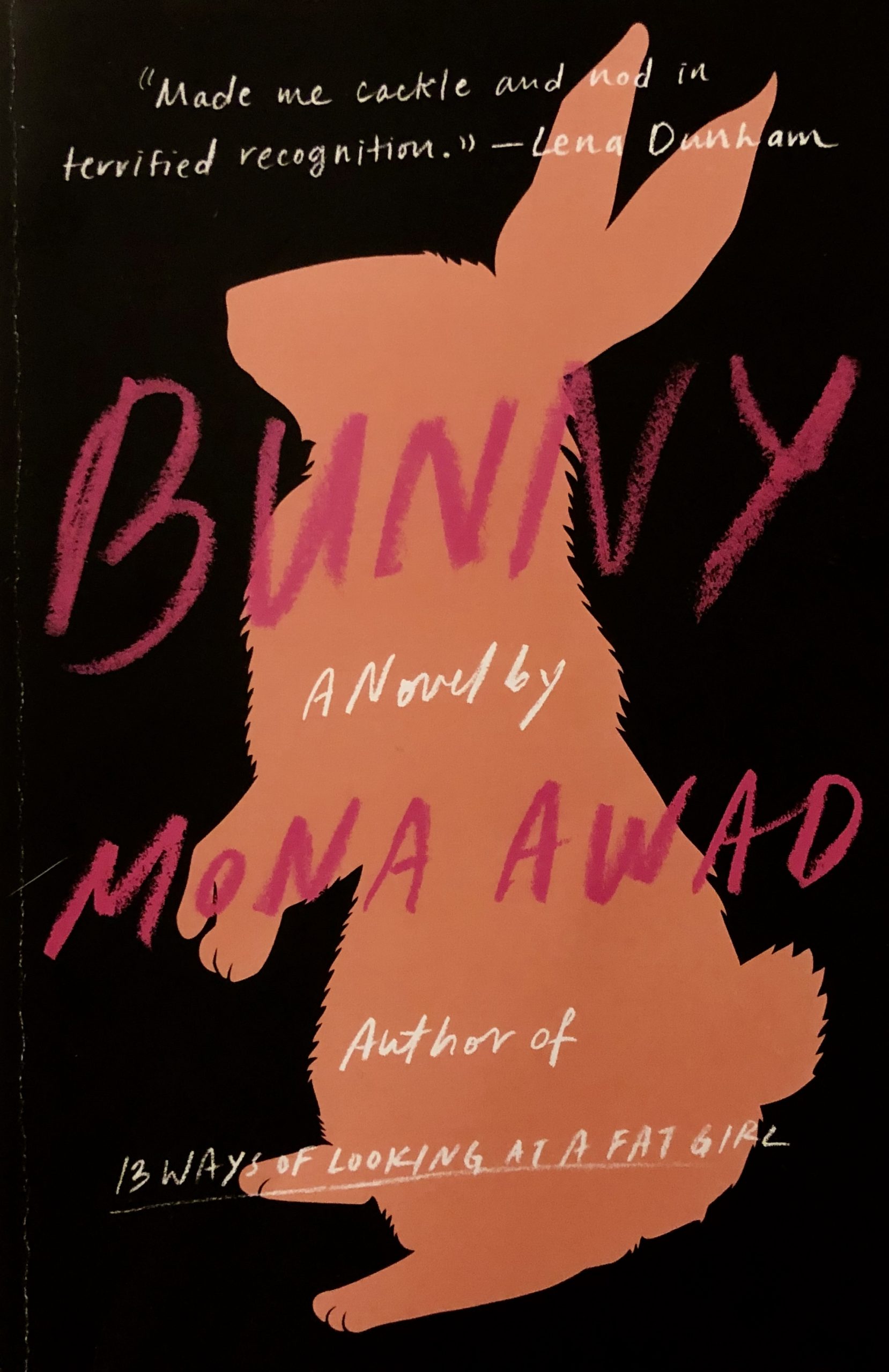


That I don’t understand it, that probably no one does and no one ever will. What kind of work does this produce? Says Samantha, “It’s a piece of pretentious shit.

“The Body is all the rage,” she tells us scathingly of their work, “as though everyone in the academic world has just now discovered that they are vesseled in precarious, fastly decaying houses of bone and flesh and my god, what material. It’s not that she likes them or their writing. Her thesis advisor, “the Lion,” stops mentoring her, she suffers from writers block, and, before we know it, she’s been sucked into the Bunnies’ sickly sweet horror (and I do mean horror) show. “It’s like Touching Tuesdays or binge watching The Bachelorette.”Īfter attending their private writers group, Samantha loses her way. Samantha gets a personalized invitation to the Bunnies’ private Smut Salon and can’t resist attending. Every single dead bug gets its own tiny glass drawer.” Now she works in the basement of the nature lab down the hill shelving dead bugs. “She dropped out before they killed her soul. Instead of hanging with the Bunnies, Samantha sits on a park bench watching a swan and filling her notebook with writing that is “sort of in love with its own outsiderness.” Samantha’s perspective is reinforced by best friend Ava, an artist who is equally revolted by the Bunny club: Remember, Bunny? That’s right, Bunny, you hung out with me and it was the best time I ever had,” we read on page one. “Hi, Bunny! Hi, Bunny! What did you do last night, Bunny? I hung out with you, Bunny. Only problem is, she is not a “Bunny.” She doesn’t belong to the clique of girls who dress in Peter Pan collars, eat miniature cupcakes, wear perfume that smells like cupcakes, and call each other Bunny. Samantha Heather Mackey is a kind of goth outsider who attends the Warren University MFA program in New England on a grant because “the school opens doors, so many doors, surely it does, doesn’t it.” But her sense of the macabre takes a peculiar turn. She has a wicked sense of humor, and you get the sense she had a lot of fun writing this book. It’s a kind of horror story crossed with satire which takes on the cliquishness, elitism, and self-indulgence that characterize so many writing workshops.Īwad also has something to say about the psychological energy, time, and money such programs exact from participants. Mona Awad (author of 13 Ways of Looking at a Fat Girl) gives the rarified world of the MFA program more than its due in her new book, Bunny. Writing programs and writers retreats have had this novel coming.


 0 kommentar(er)
0 kommentar(er)
